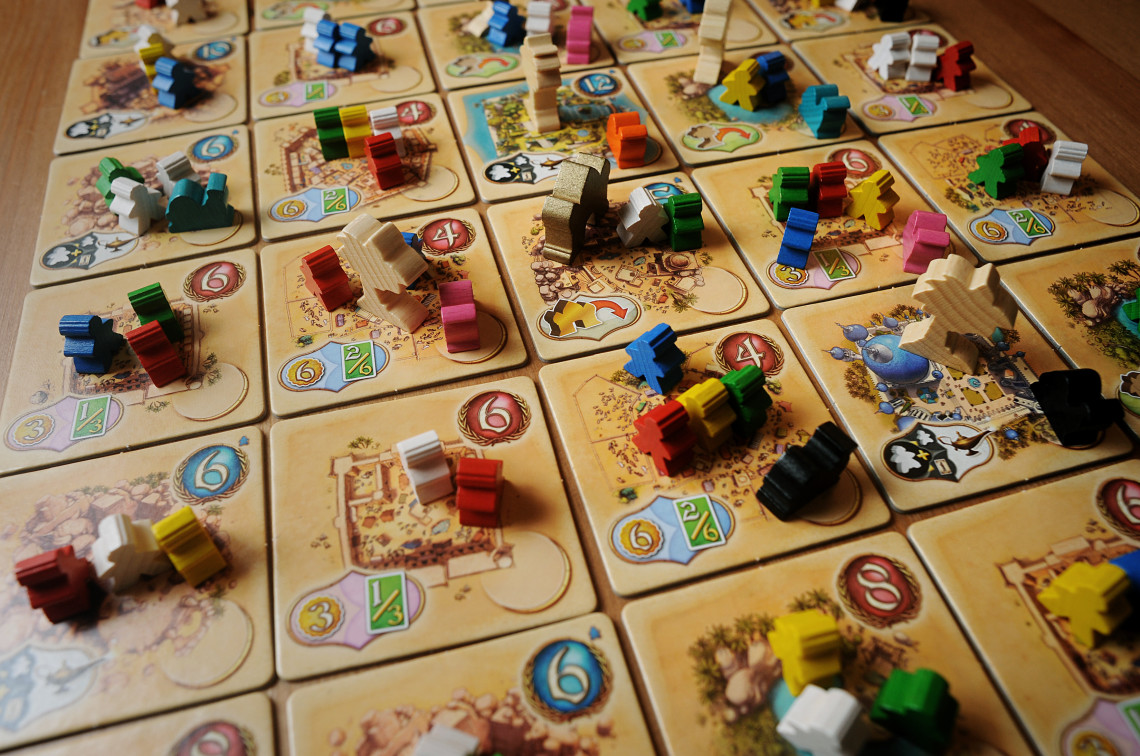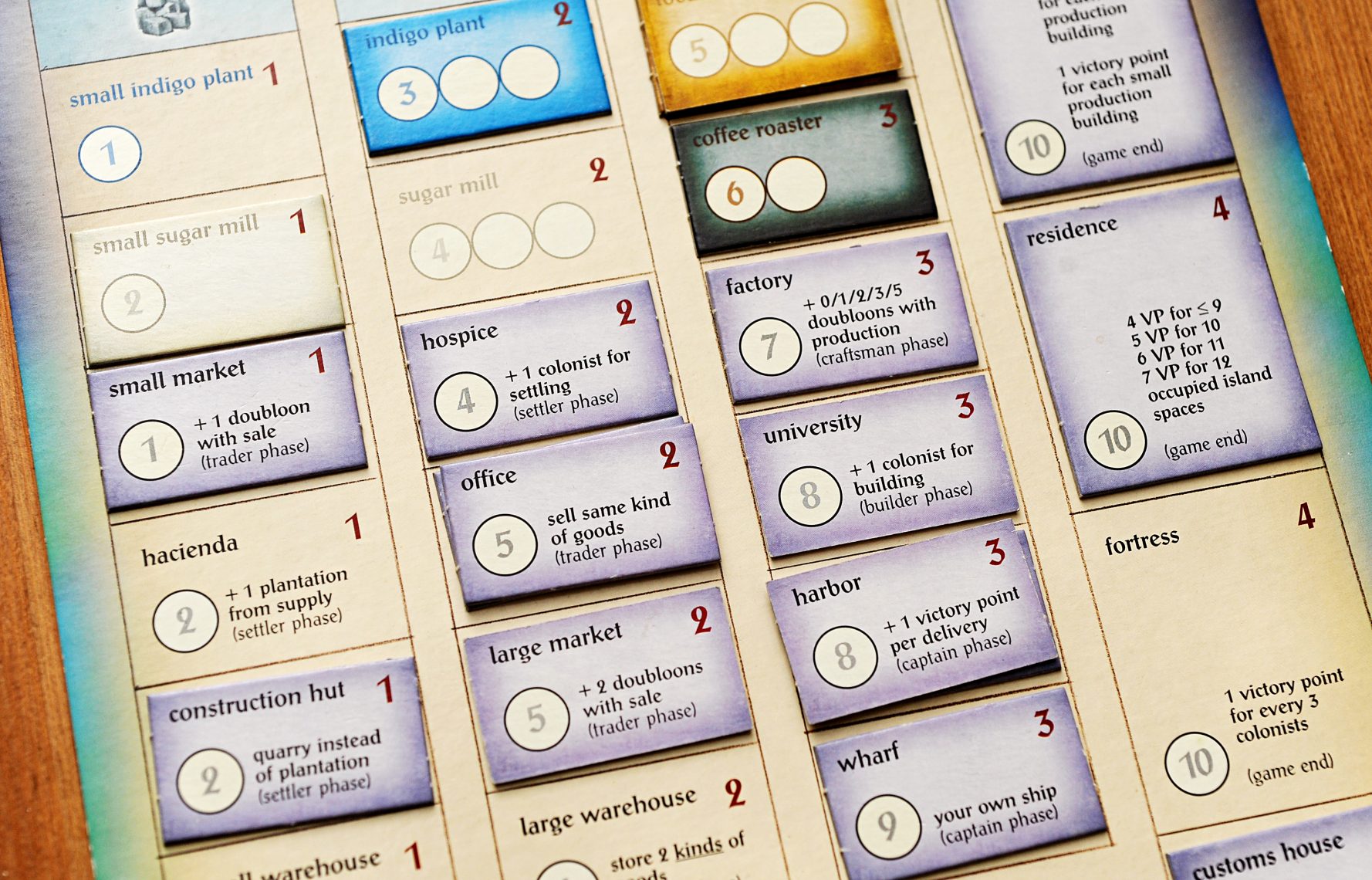Boardgaming is an incredible hobby. It’s fun, intellectually stimulating, social……but it can also be a little quirky.
Let me explain.

The very first proper “hobby board game” I played was Five Tribes, on a cold winter evening at 401 Games in Toronto. I remember climbing up a narrow flight of stairs to get to the second floor where the gaming area was, looked around awkwardly till I found the table playing Five Tribes (which I had signed up for earlier), and the first game got underway. I remember it being an almost eye-opening moment; the rules were taught, and we got playing and by the end of the game I was amazed at how much I had enjoyed myself and kept thinking “How have I not done this sooner?”
Now, for anyone not familiar with Five Tribes, I won’t go through the details of the whole game, but suffice it to say that within it, one of the types of cards you can acquire on your turn are fakir cards, which represented holy mystics or individuals who possess mystical abilities through religious dedication. Within the game, these fakir cards could later be turned in to augment other actions, and I thought it was a nice thematic touch. Fast forward a couple of years, and now I am hopelessly addicted to boardgaming by this point, and I was playing Five Tribes again; not at a formal meetup but with new friends I had made through the hobby. And while the rules were being explained, the same cards were now called slave cards, except they served the same function. Hold on, I said, surely you mean fakir cards, right? Nope, was the response. As it turned out, when the game first came out, the original cards were slave cards, and they did the same thing mechanically, but following criticisms on the “use” of slaves in the game after its release, they had changed it in subsequent print runs to fakir cards instead.
This was a bit of a weird moment for me, because it was my first experience of how certain, shall we say “odd”, thematic elements commonly get incorporated into board games, especially when their inclusion doesn’t necessarily add anything to the experience of the game itself. Mystical fakirs felt like a more obvious fit with the theme of the game, but slaves were the original choice, forcing the players to use them to obtain benefits. Often use of such thematic elements, or design choices, are justified on the basis of historical accuracy (notwithstanding the fact that the game also depicts djinns coming out of magical lamps, but I digress). After all, slavery was practiced in the Middle East back in the historical era when the game is set (loosely described as “Land of 1001 Nights”). So……maybe that makes it ok?
Since then, I have played numerous games where themes of slavery and colonialism have popped up again and again. Probably the most egregious example in my experience was with another game called Endeavor: Age of Sail, where players have the option to actively engage in the use of historical slavery during the game, which will benefit the player over the course of the play. There is another card that could come into play later in the game, that abolishes slavery in the narrative of that play, but firstly it is not guaranteed to be played and so the play session could be one where slavery continues to exist, and secondly any player who had actively participated in slavery would have accrued some benefit by it already. The game again justifies this in the name of….wait for it….historical accuracy. The rulebook in the most recent version even dedicates a small section to discuss the topic and acknowledge the use of the mechanic and explaining the choice in general.

While the use of slavery as a mechanism to benefit players is limited to a few games, the sister theme of colonialism makes its appearance in many other titles, and far more frequently. Starting from Puerto Rico to Empires: Age of Discovery and Struggle of Empires, many games have you not just playing with colonialism as a passive background setting but rather one where you have an active role in building and / or settling colonies. And while there is nothing wrong with just using a colonial setting as the backdrop for the game, to enable the players to actively engage and perpetuate that theme is where it becomes questionable at best.
There are many other events in human history that one wouldn’t not consider making the atrocities committed anything more than just background. After all, while games of Axis and Allies can actually have players playing as the bad guys, it never has the players committing genocide as a gameplay mechanic, and for a good reason – even in the context of a game, it’s wrong no matter how historically accurate it may be. Then why is colonialism fair game? You don’t hear people saying “Hey, maybe colonialism wasn’t that bad”, so why the tolerance for it when it comes to board games?
For those who have been in the hobby for a long time, reaction to this may range from “It’s obviously wrong”, through “There is no right or wrong answer”, to “It’s historically accurate”. Regardless of where you may land on that spectrum, there is at least no denying how uniquely odd the use of this theme is in this medium. As a comparison, video games have been around for decades, and represents a far larger and more mainstream hobby, which covers a broad spectrum of themes and mechanics. So then why do video games never make you play as a colonist, or enable you to engage in slavery, the same way or as frequently as board games do?
Even in games where slavery is depicted such as Assassins Creed IV, you are not actively participating in the slave trade or colonialism but rather the theme is largely in the background. Or when the theme of colonialism is used, it is as the historical setting the game is set in, such as in Age of Empires. In fact, AoE uses workers to build and gather resources, and it would have been historically accurate to depict the use of slavery for some of those actions, but that would be unthinkable there. Meanwhile, their use in gameplay mechanics is far more widespread in board games, and worryingly, not in obscure titles but rather in some of the most popular games of all time.
The root cause of why this exists is more complex and nuanced, and perhaps can be the topic of a future article. For now, let’s finish the story of the game of Five Tribes that I was playing at my friend’s place. After the history behind the fakir and the slave cards was explained, one of the players at the table asked if he had ever considered replacing his copy with one that had the fakir cards instead. He replied that in fact, he had been offered high prices in the past for his copy by other players who “valued” a copy of the game with the now rare original slave cards, so he had the option to sell it for enough to buy a new copy but didn’t want to do it because he wanted it for himself.
Quirky, right?
Right.
Just a side note to your thoughtful post. I know of one game (set in a fictional future) that has committing genocide as a mechanic: Tomorrow.
I am thinking of Sid Meyer’s Colonization as the most obvious example of Colonialism and genocide of native tribes as a game mechanic.